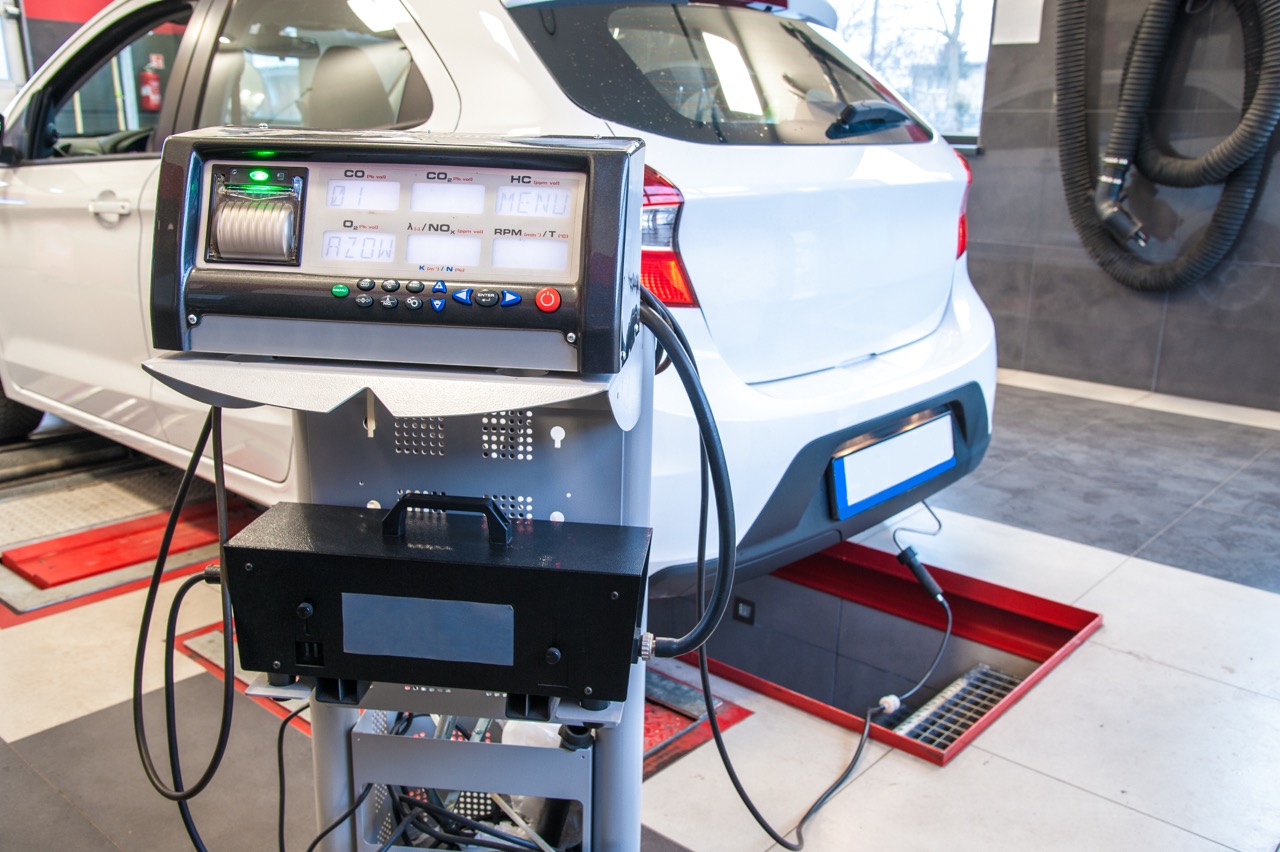
Master Muffler is your one-stop shop for auto repair, and that includes emissions testing. But what exactly is an emissions test, and what does it check for?
In a nutshell, an emissions test is a way of assessing how much pollution your vehicle is emitting. The test is usually performed at a particular facility, and it involves measuring the levels of various pollutants in your car’s exhaust. These pollutants can include carbon monoxide, nitrogen oxide, and hydrocarbons.
There are two main types of emissions tests: visual inspections and tailpipe tests. During a visual inspection, a technician will check your car for visible signs of pollution, such as leaks in the exhaust system. On the other hand, a tailpipe test involves measuring the pollution levels in your car’s exhaust.
How to Prepare For and Pass an Emissions Test
Here at Master Muffler, we want to make sure your car is in tip-top shape for its emissions test. That’s why we’ve put together a few tips on how to prepare for the inspection. First, it’s important to make sure your car is properly tuned. This means ensuring that all the systems in your car are working correctly and that there are no leaks or other problems. You should also make sure your car has enough fuel in it- a full tank is usually best. Finally, it’s a good idea to drive your car around for a bit before the test to make sure it’s warmed up. If you follow these tips, you can be confident that your car will pass its emissions test with flying colors. Give us a call today to schedule an inspection!
How Often You Need an Emissions Test
Depending on where you live, your car may need to undergo an emissions test once a year or every other year. In some states, the test is required when you first register your car, and then it’s only needed again if you make significant changes to your vehicle.
In Utah, vehicles that are less than two years old should be tested every two years.
What Happens if My Vehicle Doesn’t Pass Emissions Testing?
If your car does not pass its emissions test, you may be subject to several consequences. First, you may have to pay a fine if you continue driving without passing. Second, you may be required to get your car repaired or serviced to bring it up to emission standards. Finally, you may be prohibited from registering your car until it passes inspection.
The cost of repairing or servicing your car can vary depending on the problem. However, it is typically not very expensive to make the necessary repairs or service your car so that it will pass inspection.
Ways to Reduce Vehicle Emissions
There are some ways to reduce the number of pollutants your car emits. These include things like getting your car tuned up regularly, driving less, and using cleaner-burning fuels.
How effective these methods are depends on a number of factors, including the type of car you have and how often you drive it. However, even making small changes can make a big difference in the amount of pollution your car emits.
Getting a Waiver if You Don’t Pass Emissions
If your car doesn’t pass the emissions test, you can get a waiver. The process is simple as long as you meet the criteria: just fill out a form and submit it to the Ogden DMV. However, there are a few things to keep in mind. First, not all cars are eligible for a waiver. Second, the waiver only applies to the emissions test; it does not exempt your car from other requirements, such as passing a safety inspection. Finally, if you do receive a waiver, you’ll need to have your car retested every year. So, while it’s possible to get a waiver if your car doesn’t pass the emissions test, it’s not necessarily easy. But if you’re willing to jump through a few hoops, it can be done.
CONTACT OGDEN MASTER MUFFLER TODAY
(801) 938-8037
To prepare your vehicle for an emissions test or have one performed, give us a call at the Ogden Master Muffler today.
Related Posts
Key Takeaways On average, passenger vehicle tires last 40,000 to 60,000 miles, depending on type, driving habits, and maintenance. Replace tires when tread depth reaches 2/32”, if damaged, or older than 10 years. Regular rotation, alignment, and proper inflation extend tire life. Aggressive driving, poor roads, and harsh weather shorten tire lifespan. Take advantage [...]
When you think about car maintenance, you probably focus on oil changes, tire rotations, and maybe even brake pad replacement. But what about your brake fluid? If you’ve ever wondered, “What does brake fluid do?” or “Why is brake fluid important?”, you’re not alone. Brake fluid might not be the most talked-about part of [...]
Is that high-pitched squeal from your brakes driving you—and everyone else—crazy? Don’t ignore it. Squeaky brakes aren’t just annoying, they’re your car’s way of saying something needs attention. Whether you're cruising through Salt Lake City or winding up Idaho’s mountain passes, here’s what’s likely going on, how you can fix it, and when it [...]





